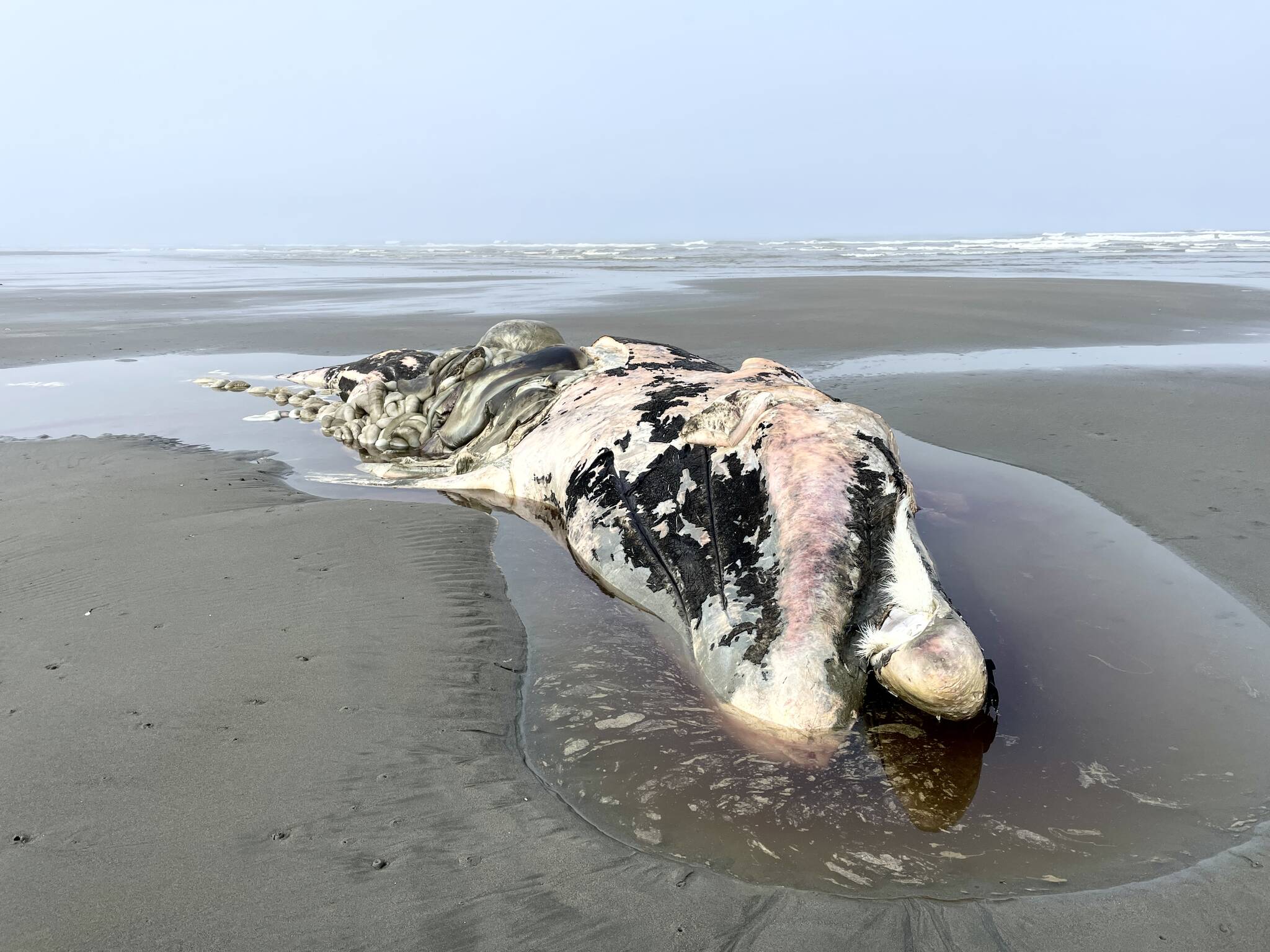A second dead gray whale washed ashore in Grays Harbor County late last week, this one north of Ocean Shores.
This follows a juvenile gray whale washing ashore in Westport last week after being dead for several weeks, said Jessie Huggins, stranding coordinator for the Cascadia Research Collective.
The Ocean Shores whale is a 39-foot adult male gray whale, Huggins said.
Stranding specialists were able to necropsy it last Friday.
“That one started coming ashore late Wednesday evening,” Huggins said. “The most significant finding was malnutrition.”
The whale had been eating poorly, and had no blubber or fat content, Huggins said. The whale had possible signs of trauma, but they were unable to determine the extent as it was on the underside of the whale. There were no signs of predation by orcas or damage from entanglement, Huggins said.
“Other than the fact that the gray whales are migrating past Washington, there’s no connection,” Huggins said. “I know there’s concerns because there was several (strandings) in a short amount of time.”
Most gray whales are migrating up the coast to the Bering Sea to feed right now, Huggins said. Those that may not be fit for the journey may die along the way.
“It’s usually the stragglers from the larger migrations that we find washed ashore,” Huggins said. “There’s probably lots that die offshore that we never see.”
The mortality rate for whales is still higher than average, Huggins said, but it’s come down from where it was. The two deaths so close to each other are likely coincidental, Huggins said. Cascadia personnel are working to see if the whale had any marks that would identify its group.
It is a federal crime to take souvenirs from any whales under the Marine Mammal Protection Act.
“It is illegal to take marine mammal parts even from a dead animal,” Huggins said.
Beachgoers should stand clear of the whale, taking special care not to let pets interfere with the remains, so that they don’t spread disease that might have incubated in the rotting whale corpse.
Washington State Parks will make the decision about what to do with the whale.
Contact Senior Reporter Michael S. Lockett at 757-621-1197 or mlockett@thedailyworld.com.



